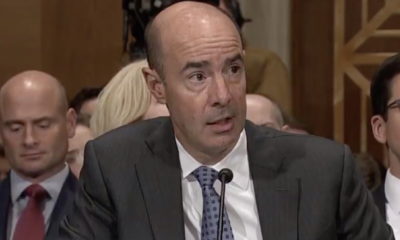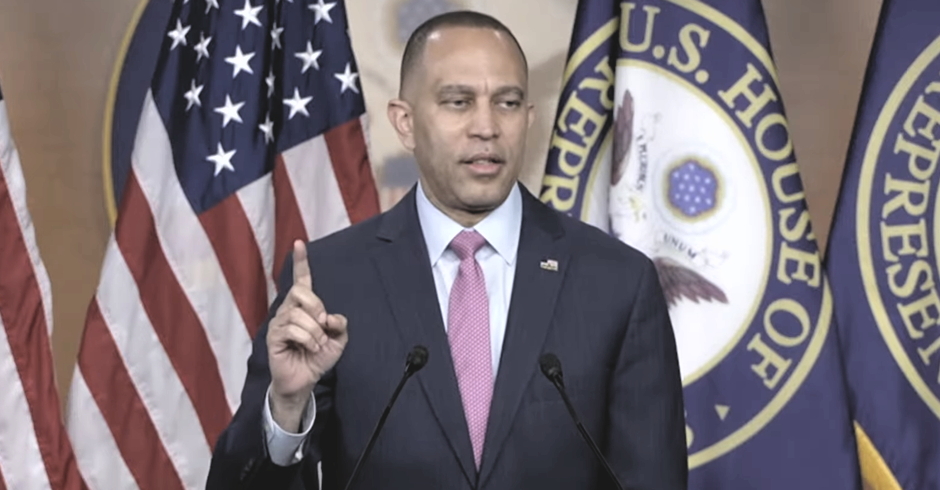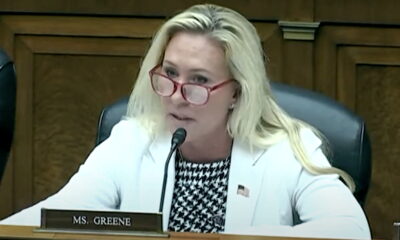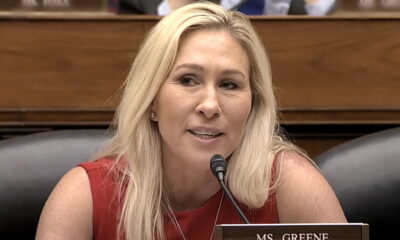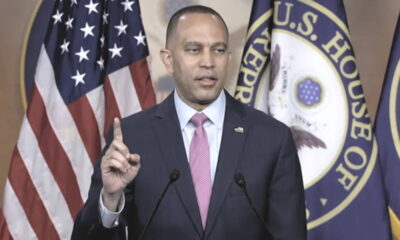News
LGBTQ Elders Are More Likely to Be Socially Isolated, Suffer from Dementia Than Straight Peers

A new report by University of California San Francisco is making a big claim: LGBT people are at heightened risk of dementia. Additionally, LGBT elders are more likely to be socially isolated than their straight cisgender counterparts, and this social isolation can lead to more physical and mental health problems in comparison.
The new data was released at the 2019 Alzheimer’s Association International Conference (AAIC) in Los Angeles. Data was collected via mainly phone-based surveys across nine U.S. states. Approximately 44,000 adults aged 45 and older participated wherein roughly 3% of respondents identified themselves as a “sexual or gender minority.”
Another study presented at AAIC 2019 investigated the effectiveness of a first-of-its-kind Alzheimer’s intervention designed specifically to improve physical function and independence for LGBT older individuals with dementia and their caregivers.
The study, conducted by researchers at the University of Washington, showed the importance of tailored interventions and strong community partnerships in designing care for LGBT individuals.
“Much too little is known about Alzheimer’s disease and dementia in the LGBT community. In fact, the first data on the prevalence of dementia among sexual and gender minorities was reported only last year at AAIC 2018,” said Maria C. Carrillo, PhD, Alzheimer’s Association chief science officer.
“As expanding research efforts continue to teach us more about the variability of Alzheimer’s and other dementias — for example by sex, race, genetics and exposure to environmental factors — the Alzheimer’s Association will fund, and encourage others to fund, more studies in LGBT and other diverse populations,” Carrillo added.
Increased Risk for Subjective Cognitive Decline Among Sexual and Gender Minorities
Few studies have investigated the symptoms and disease progression of Alzheimer’s and other dementias in the LGBT community.
To examine these associations, Jason Flatt, PhD, MPH, assistant professor at the Institute for Health & Aging at the University of California, San Francisco, and colleagues analyzed data from the 2015 Behavioral Risk Factor Surveillance System (BRFSS), a large phone-based survey led by the Centers for Disease Control and Prevention.
The study analyzed data from 44,403 adults aged 45 and older across nine states in the U.S. (Georgia, Hawaii, Illinois, Minnesota, Nevada, Ohio, Virginia, West Virginia, and Wisconsin) that participated in the 2015 BRFSS optional modules on the Healthy Brain Initiative, which included subjective cognitive decline and Sexual Orientation and Gender Identity.
Roughly three percent of participants (1,253) identified as a sexual or gender minority (SGM). Subjective cognitive decline was defined as self-reported confusion or memory problems that have been getting worse over the past year.
The researchers found that more than 14% of SGM participants reported subjective cognitive decline, significantly higher (p<0.0001) than the 10% rate among cisgender heterosexual participants. Even after adjusting for factors such as income, age and race, SGM participants were 29% more likely to report subjective cognitive decline.
More research is needed to understand why subjective cognitive decline may be higher in SGM individuals.
“Given that 1 in 7 adults who identified as a sexual or gender minority reported subjective cognitive decline, it is critical that more opportunities exist for people in these communities to receive regular evaluation for cognitive impairment and Alzheimer’s disease,” Flatt said. “There is also a need for greater education on Alzheimer’s risk, signs and symptoms, and training of health care providers to ensure inclusive and welcoming care for LGBTQ+ populations.”
“While we do not yet know for certain why sexual or gender minority individuals had higher subjective cognitive decline, we believe it may be due to higher rates of depression, inability to work, high stress, and a lack of regular access to healthcare,” Flatt added.
According to Flatt, less than half of SGM adults with SCD in the study talked to their health care provider about it. SGM adults with SCD were also more likely to report that they had to give up day-to-day activities (39% vs. 29%, p=0.003) and needed help with household tasks (44% vs. 35%, p=0.01) than cisgender heterosexual participants. Both groups were similar in terms of talking to their health care provider about their subjective cognitive decline.
First Study of an LGBT-Specific Alzheimer’s and Dementia Intervention
To advance research into Alzheimer’s in the LGBT community, Karen Fredriksen-Goldsen, PhD, professor and director of Healthy Generations Hartford Center of Excellence at the University of Washington, created the Aging with Pride: Innovations in Dementia Empowerment and Action (IDEA) study.
A multisite study in Seattle, San Francisco, and Los Angeles, Aging with Pride: IDEA is the first federally-funded study dementia intervention specifically designed for LGBT older adults with dementia and their caregivers.
The researchers had previously identified unique risk factors of LGBT older adults living with dementia through the first longitudinal study of this population (Aging with Pride: National Health, Aging, and Sexuality/Gender Study). Using longitudinal data with three time points (2014, 2015 and 2016), modifiable factors predicting physical functioning and quality of life (QOL) among LGBT older adults with dementia (n=646) were identified.
LGBT older adults living with dementia were significantly more likely to live alone (nearly 60%), not be partnered or married (65%), not have children (72%), and not have a caregiver (59%), when compared to older non-LGBT adults living with dementia. Previous experiences of discrimination and victimization (b=-0.19, p<.001) were negatively associated with QOL among LGBT older adults living with dementia. Socializing with friends or family (b=1.11, p<.05) was positively associated with QOL, and physical activity (b = 0.26, p<.001) were associated with better physical functioning.
As reported at AAIC 2019, Aging with Pride: IDEA includes a tailored approach in which trained coaches identify and modify challenging behaviors that are adversely affecting older adults living with dementia and their caregivers, either of whom are LGBT. The coaches delivered an individualized program of exercise, and behavioral and coping strategies designed to improve physical function, independence and QOL.
The exercise intervention is a low-impact physical exercise program including nine one-hour sessions over six weeks designed to improve physical functioning and maintain independence. The behavior and coping strategies include: techniques for working with LGBT-specific trauma, identity management and disclosure of their LGBT identities to providers and others, plus support engagement in the LGBT community and dementia services.
Testing of the intervention is now underway and will be delivered to 225 pairs of LGBT older adults living with dementia and their caregivers.
“Given their lifetime experiences of victimization, discrimination and bias, many LGBT older adults forgo seeking needed medical care,” said Fredriksen Goldsen. “LGBT people living with dementia and their caregivers often have difficulty accessing information and support services, which can be especially challenging when memory loss and dementia enter the equation.”
Image via GenPride.
Enjoy this piece?
… then let us make a small request. The New Civil Rights Movement depends on readers like you to meet our ongoing expenses and continue producing quality progressive journalism. Three Silicon Valley giants consume 70 percent of all online advertising dollars, so we need your help to continue doing what we do.
NCRM is independent. You won’t find mainstream media bias here. From unflinching coverage of religious extremism, to spotlighting efforts to roll back our rights, NCRM continues to speak truth to power. America needs independent voices like NCRM to be sure no one is forgotten.
Every reader contribution, whatever the amount, makes a tremendous difference. Help ensure NCRM remains independent long into the future. Support progressive journalism with a one-time contribution to NCRM, or click here to become a subscriber. Thank you. Click here to donate by check.
 |








